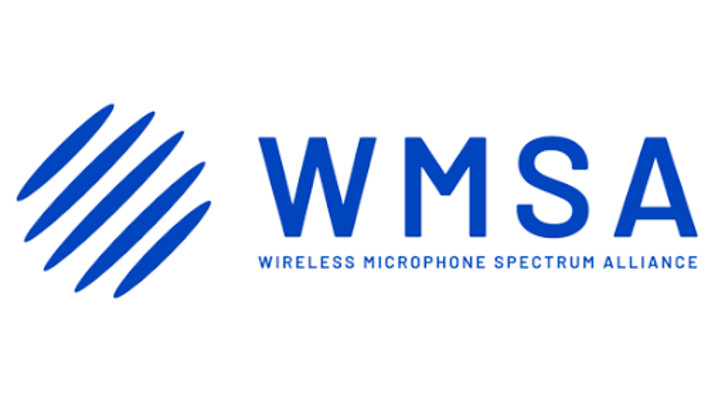The professional video industry's #1 source for news, trends and product and tech information. Sign up below.
You are now subscribed
Your newsletter sign-up was successful
Digital TV Switchover Begins in London
The United Kingdom is conducting its digital switchover region by region. This week the shutdown reached London with analog BBC Two being turned off there on Tuesday. The last London analog stations will be turned off on April 18. There are many articles covering the shutdown.
The Londonist writes about the Crystal Palace Light Show to Mark Digital TV Switchover. The digital switchover improved coverage, as Metro.co.uk says 400,000 out of London blackspots as digital switchover guide is released.
Andrew Hough and Matt Warman, writing in The Telegraph, look at the people that lost reception in Five million lose analogue TV signal after digital switch. "Despite a major advertising campaign, thousands of households were forced to phone emergency help lines as they discovered they could not watch their set."
DigitalSpy has a good overview of the switchover and the Crystal Palace facility in the article London to bid farewell to analogue TV.
Forbes Article Says Wireless' Future 'Is Wired'
Forbes.com has a refreshing look at the "spectrum deficit" in the article The Future of Wireless is Wired. Contributor Laetitia Garriott de Cayeux writes, "Interestingly, the winning investment play around the future of wireless may not be speculating on the ever-increasing value of an intrinsically finite resource. That's because scarcity of wide-area spectrum will cause a significant migration towards more local area networks such as femtocells (small, lower-power radio transmission stations) and WiFi, and will eventually find a relay in the infinitely expandable, wired backhaul link to a provider's core network. Wired fiber infrastructure can still carry vastly more data than any wireless system."
He notes: "This leads us to the following paradox: the true savior, and arguably only reliable investment play, will be backhaul technology service companies that will allow our wireless future to be wired, moving the paradigm from one of intrinsic scarcity (wireless bandwidth) to one of abundance (wired backhaul). Here, the universe of investable names includes companies providing transmission technology (copper, optical fiber, and microwave relay) as well as digital services at both ends of the wire such as sorting and distributing data packets."
ViaSat Exede Sat Internet Reviewed
Tim Stevens, writing on Engadget.com, offers a ViaSat Exede review. ViaSat Exede is a new Ka-band satellite Internet service providing downlink speeds of 12 Mbps and uplink speeds of 3 Mbps at a cost of $50 per month for 7.5 GB of data. Higher priced plans offer more data. Stevens describes some of the problems with satellite latency and the--as of now--"soft" data caps, but concludes, "Stepping away from frantic online activities, we found Exede to be more than serviceable. Netflix movies streamed in HD without complaint, though they did take a little longer to buffer at the outset. Large file downloads and uploads hummed along without a problem and anything that doesn't require a lot of back-and-forth network traffic was more than respectably quick. Even VoIP chats on Skype and the like sounded fine, though you'll definitely notice that latency."
While the ViaSat Ka-band Exede service offers much higher data rates and much higher data cap than Ku-band Internet services, there has been a lot of concern over the reliability of the Ka-band link in bad weather. Stevens reports, "As far as availability goes, we had a particularly mild winter this year so we can't say for sure the direct impact inclement weather has on such a service, though we did manage to have one decent snowstorm during our testing. Performance was unaffected." He said that he was without service for a few days, apparently due to a satellite system update gone awry, something he was assured would not happen again.
While some of the statements in the article may sound discouraging, Stevens was comparing Exede to terrestrial based Internet service, not the other, much more limited, satellite Internet service options.
LightSquared Waiver Comment Period Ends
Willie Vogt, in his Tech Tuesday blog posting Final Replies in LightSquared Debate are Filed on FarmFutures.com has a good overview of the current state of the conflict between LightSquared, the FCC and GPS manufacturers and users. He includes links to the LightSquared response, comments in favor of LightSquared, and the Save Our GPS Coalition response.
The professional video industry's #1 source for news, trends and product and tech information. Sign up below.

Doug Lung is one of America's foremost authorities on broadcast RF technology. As vice president of Broadcast Technology for NBCUniversal Local, H. Douglas Lung leads NBC and Telemundo-owned stations’ RF and transmission affairs, including microwave, radars, satellite uplinks, and FCC technical filings. Beginning his career in 1976 at KSCI in Los Angeles, Lung has nearly 50 years of experience in broadcast television engineering. Beginning in 1985, he led the engineering department for what was to become the Telemundo network and station group, assisting in the design, construction and installation of the company’s broadcast and cable facilities. Other projects include work on the launch of Hawaii’s first UHF TV station, the rollout and testing of the ATSC mobile-handheld standard, and software development related to the incentive auction TV spectrum repack. A longtime columnist for TV Technology, Doug is also a regular contributor to IEEE Broadcast Technology. He is the recipient of the 2023 NAB Television Engineering Award. He also received a Tech Leadership Award from TV Tech publisher Future plc in 2021 and is a member of the IEEE Broadcast Technology Society and the Society of Broadcast Engineers.
